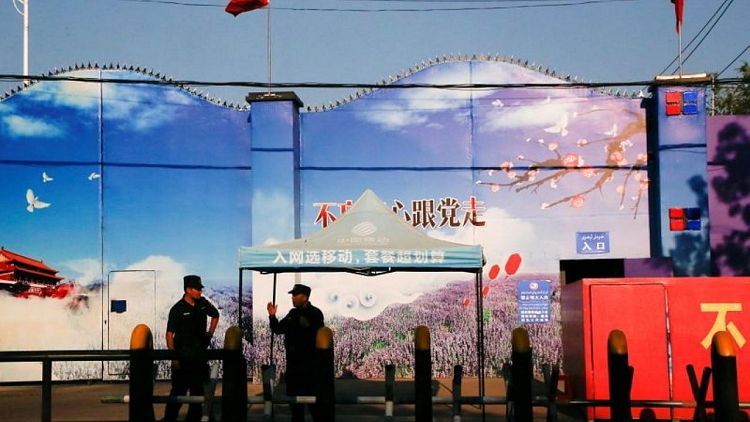By Stephanie Nebehay
GENEVA -The top United Nations human rights official said on Monday she hoped to agree on terms for a visit this year to China, including its Xinjiang region, to look into reports of serious violations against Muslim Uyghurs.
It was the first time that Michelle Bachelet had publicly suggested a timeline for the visit, for which her office has been negotiating the terms since September 2018.
China's U.N. mission in Geneva, contacted by Reuters for comment, said Xinjiang and Hong Kong were "inalienable parts of China's territory" and that it brooked "no interference by external forces".
Its spokesman Liu Yuyin later said in a statement that China welcomed Bachelet to visit, including Xinjiang, but the visit should be a "friendly one" aimed at promoting cooperation "rather than making the so-called 'investigation' under the presumption of guilt".
Bachelet is under growing pressure from Western states to secure unfettered access to Xinjiang, where activists say more than 1 million Uyghurs and other Turkic Muslims have been held in camps, some of them mistreated or subject to forced labour.
Beijing denies the accusations and describes the camps as vocational training facilities to combat religious extremism.
"I continue to discuss with China modalities for a visit, including meaningful access, to the Xinjiang Uyghur Autonomous Region, and hope this can be achieved this year, particularly as reports of serious human rights violations continue to emerge," Bachelet told the U.N. Human Rights Council in Geneva.
Amnesty International and Human Rights Watch issued reports this year documenting practices that they said could meet criteria for crimes against humanity in Xinjiang.
TEST OF HONG KONG JUDICIARY
Bachelet told the council that the national security law imposed in Hong Kong a year ago had had a "chilling impact" on democratic space and media in the former British colony. She said 107 people had been arrested under the law, including 57 formally charged, and that the first trials were due this week.
"This will be an important test of independence for Hong Kong’s judiciary in its willingness to uphold Hong Kong’s obligations under the International Covenant on Civil and Political Rights, in accordance with the Basic Law," she said.
Government officials in Beijing and Hong Kong say the national security law is needed to avert threats to national security, and that the rights and freedoms of ordinary Hong Kong people are being be protected.
"The High Commissioner is advised to stop making erroneous remarks against China, and refrain from interfering in China’s sovereignty and judicial independence," Liu said.
Critics say the law is being used to crush dissent in the global financial hub, an assertion Beijing rejects.
